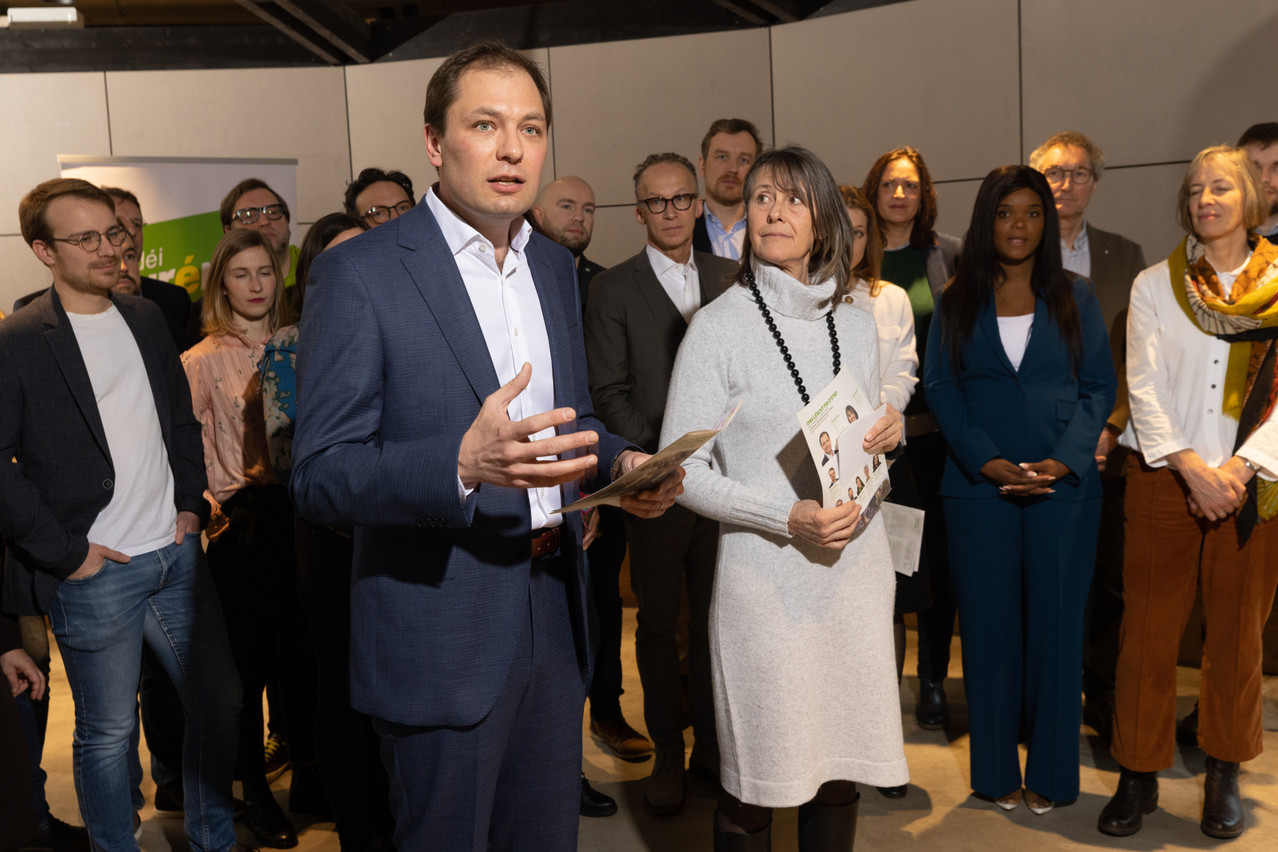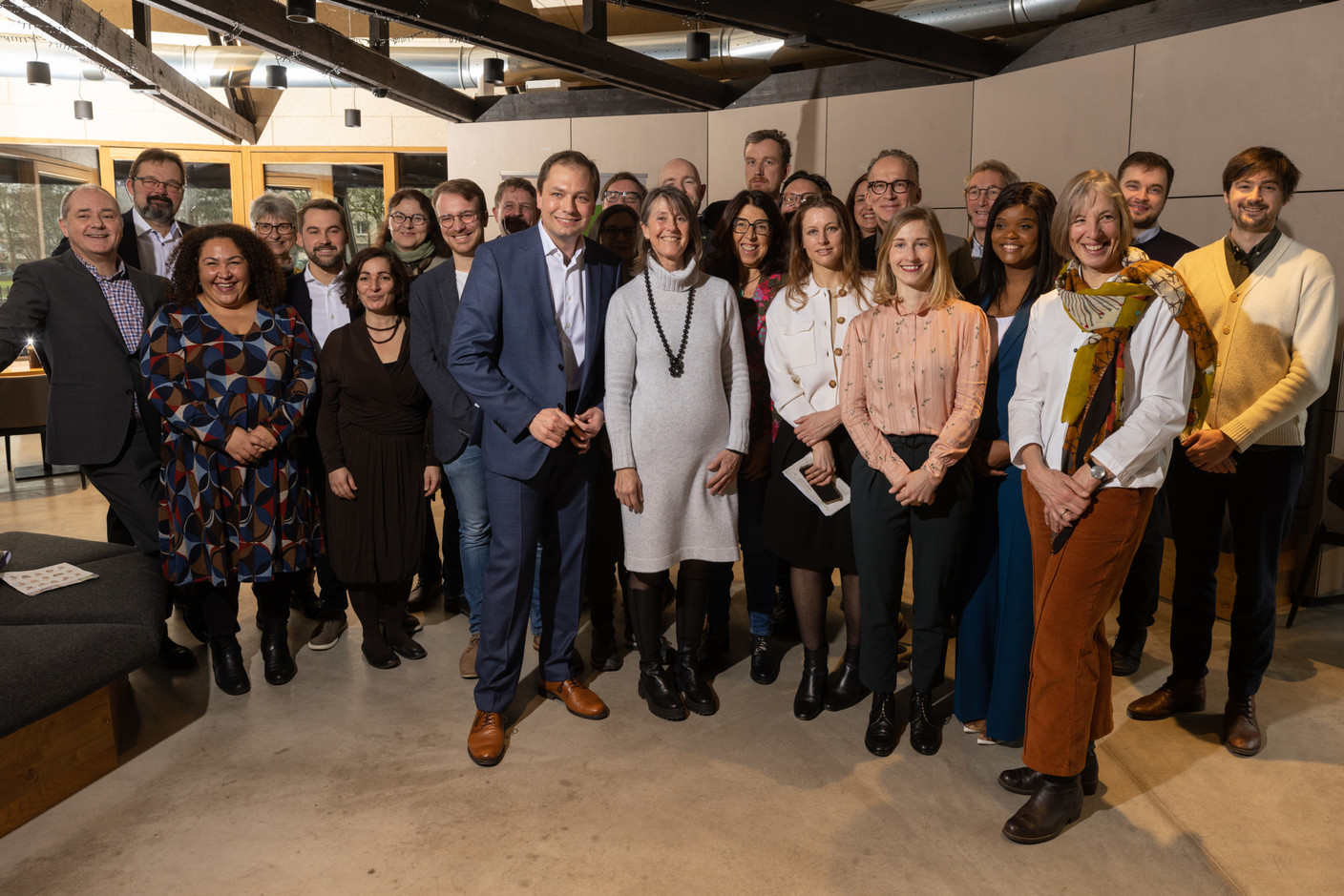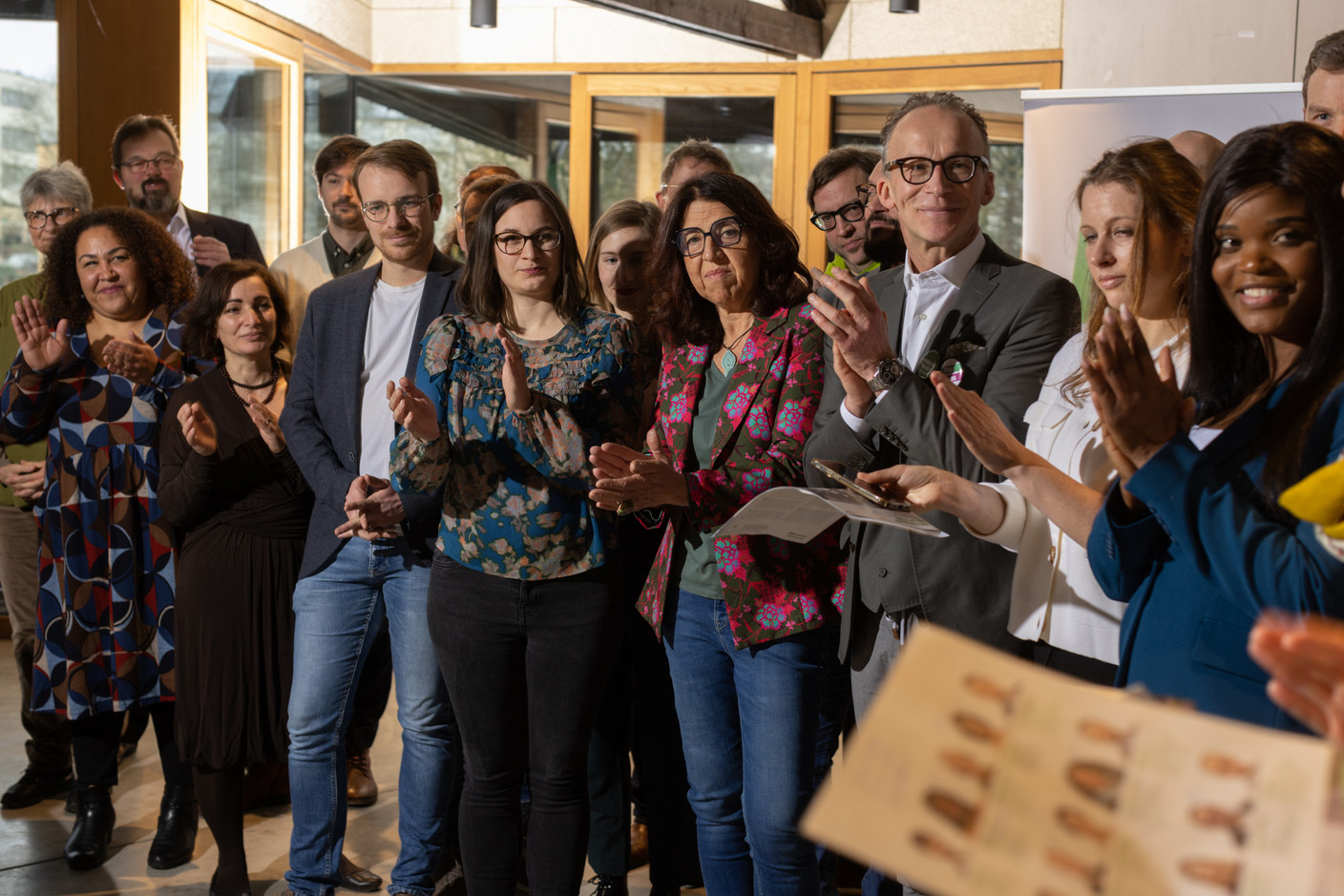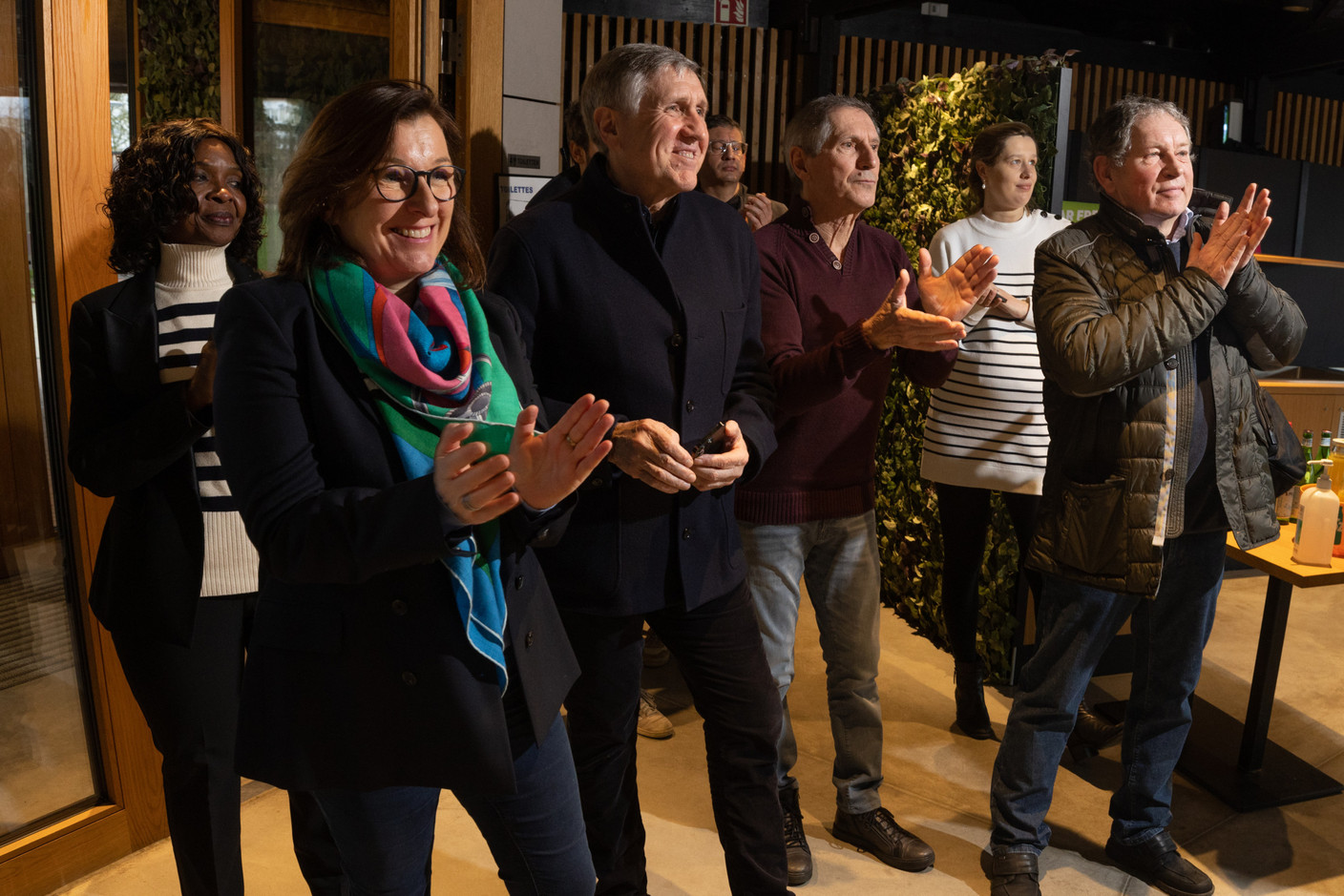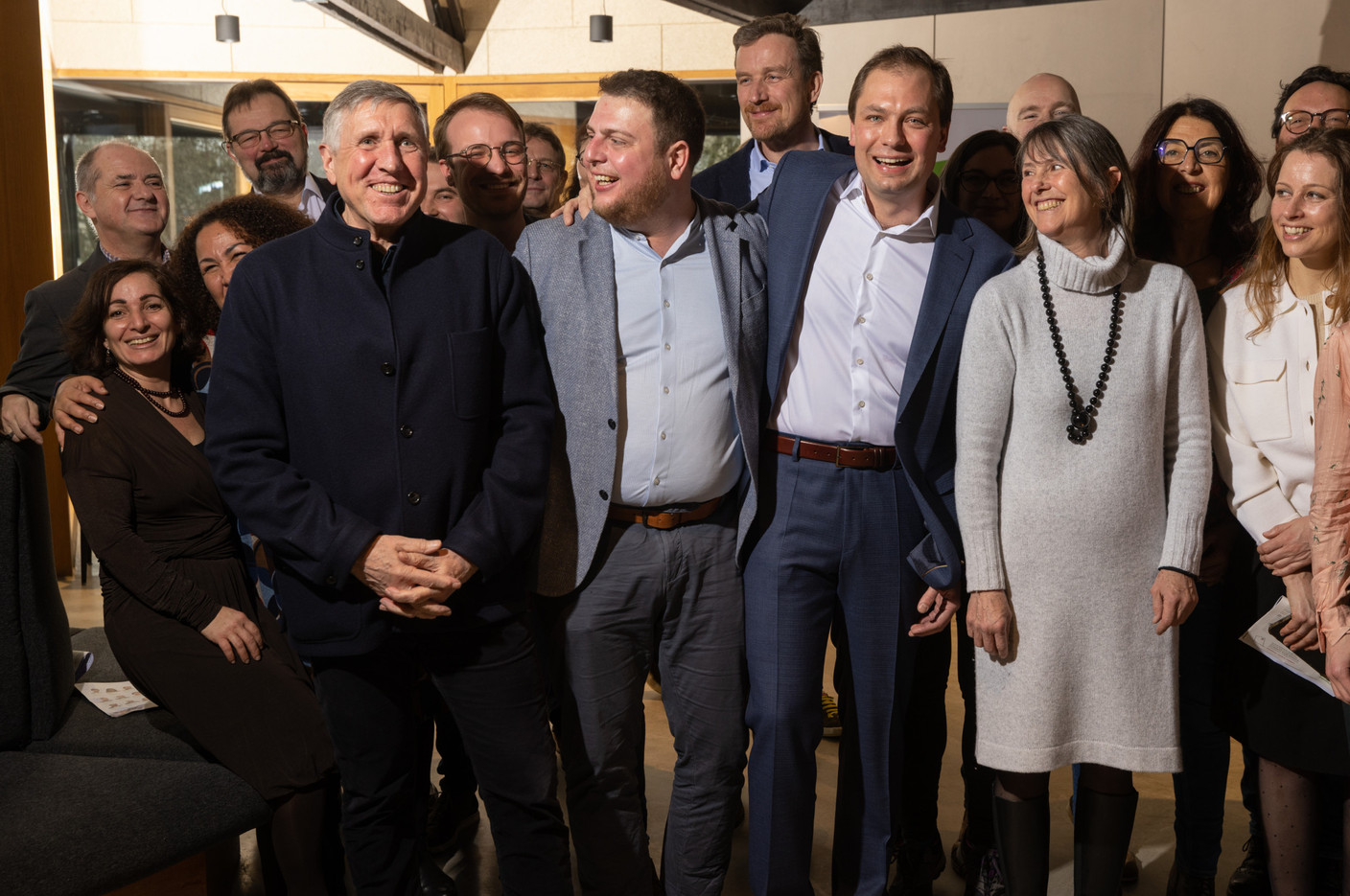“Fresh air” in the capital, with a list that embodies it: the déi Gréng party presented its 27 candidates for the municipal elections in Luxembourg City on Friday at the Merl Park pavilion.
“It’s the first time that a list has been presented that embodies this change, with people who are committed on the ground,” explained , . “So we really tried to find new people.”
As a result, more than half of the candidates are running for the first time in municipal elections. This is a way of going against the grain of the mayor, (DP), who is standing for re-election even though she was first elected to this position in 1982.
Mobilising for foreigners to vote
With an average age of 47, the list, adopted unanimously by the members of the local section, is also intended to be equal in number--13 women, 14 men--and multicultural: seven different nationalities, 14 neighbourhoods represented and professional sectors ranging from the financial sector to civil society and the cultural sector.
“We brought together people of all ages, many different nationalities, Luxembourgers, non-Luxembourgers, from different professions, from different neighbourhoods, and I feel a great energy, which makes me happy and gives me confidence,” Reyland enthused.
In the coming weeks, the priority will be to mobilise foreigners to register to vote--although they represent 71% of the capital's population, only 7% are registered. “A sustainable city is a city where citizens are more involved,” said Benoy. To achieve this, going out into the field will be the preferred method: “Many people don’t even know they can vote, so the most important thing is to talk to people.”
Five programme priorities
In addition to this, it will be a matter of continuing to work internally on the electoral programme, which will be voted on at the general assembly at the end of March, even if the main lines of the campaign have already been determined.
The déi Gréng members of Luxembourg City have identified five main priorities: improving the quality of life in neighbourhoods, with more meeting places, shops and no passing traffic. A climate-neutral city in ten to twenty years’ time, with more greenery and renewables, as well as better quality primary schools.
It will also, of course, require an efficient mobility policy that favours bicycles--with safe cycle paths--and pedestrians, and focuses on public transport, carsharing and electromobility. “In 2035, we will have 40% more trips, so if we don’t make a fundamental change in mobility in the city, it will be chaos,” warned Benoy.
Déi Gréng “guaranteeing” political action
The issue of housing will of course be crucial. “The city has a lot of reserves, but it is not using the political means at its disposal to mobilise and develop them further,” says the mayoral candidate, who wants to double the number of affordable housing units.
Faced with these challenges in the capital, déi Gréng wants to be the “guarantor” that, once in the majority, they will be met. “We will be in the mayor’s office to achieve as much as possible,” said Benoy.
The list
François Benoy, MP and local councillor
Claudie Reyland, local councillor
Nicolas Back, energy transition engineer
Liudumila Vanira Branca, executive assistant
Christa Broemmel, local councillor
Marie Cheynet, emergency medicine doctor
Jean-Marc Cloos, medical director of the Centre Hospitalier du Nord
Fabricio Costa, co-president déi jonk gréng
Eduarda de Macedo, local councillor
Patrick van Egmond, entrepreneur
Stefania Filice-Lorenzen, lawyer at the Court of Justice of the EU
Linda Gaasch, local councillor
Nicolas Hentgen, investment director
Cyrille Horper, mobility project manager
Laure Huberty, civil servant, diplomat
Nicole Etikwa Ikuku, director, NGDO Cooperation Circle
Bob Lessel, health sciences expert
Nico Meyrer, retired professor
Charles Muller, independent director
Barbara Ruland , architect
Laure Simon-Becker, coordinator of religious heritage projects
Dubravka Sušilović, European civil servant
Sébastien Tasch, audiovisual project manager
Yves Wagener, state councillor, lawyer
Pauline Walter, legal officer, CCSS
Charles Wennig, executive assistant, Konschthal
Paul Zens, co-chairman of Gréng Stad
This story was first published in French on . It has been translated and edited for Delano. The article was edited on 06.02.2023 at 15:29 to include Fabricio Costa, Eduarda de Macedo and Patrick van Egmond on the list.
